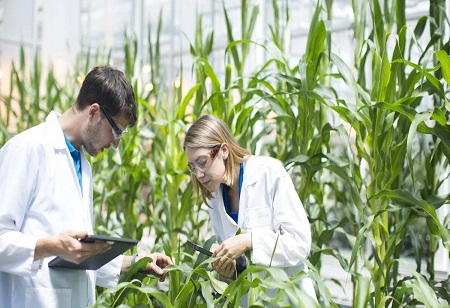Agricultural Biotechnology provides farmers with tools that can make production cheaper and more manageable. For example, some
biotechnology crops can be engineered to tolerate specific herbicides which make weed control more simple and efficient. Other crops have been engineered to be resistant to specific plant diseases and insect pests, which can make pest control more reliable and effective and can decrease the use of synthetic pesticides.
Agricultural Biotechnology market size was worth USD 39.7 billion in 2021 and estimated to be growing at a CAGR of 10.91 per cent to reach USD 66.7 billion by 2026. “Genetically modified or transgenic crops are among the top end users of agricultural biotechnology as it provides higher and improved yield, resistance to pests, longer shelf life and high nutritional value due to which food grains demand-supply gap is reduced”, says Raj Ketkar, CEO, Arcadia Biosciences.
Safeguarding Crops against Disease
The application of biotechnology in agriculture has resulted in benefits to farmers, producers and consumers. Biotechnology has helped to make both inspect pest control and weed management safer and easier while safeguarding crops against disease. For example, genetically engineered insect resistant cotton has allowed for a significant reduction in the use of persistent, synthetic pesticides that may contaminate groundwater and the environment.
Agricultural biotechnology has been used to protect crops from devastating diseases. The papaya ringspot virus threatened to derail the Hawaiian papaya industry until papayas resistant to the disease were developed through genetic engineering. Research on potatoes, squash, tomatoes and other crops continues in a similar manner to provide resistance to viral disease that otherwise are very difficult to control.
Prevents Soil Erosion
In terms of improved weed control, herbicide tolerant soybeans, cotton and corn enable the use of reduced risk herbicides that break down more quickly in soil and are non-toxic to wildlife and humans. Herbicide tolerant crops are particularly compatible with no-till or reduced tillage agriculture systems that help preserve topsoil from erosion.
